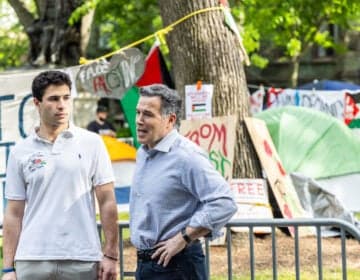Eyal Yakoby Criticizes Biden's DNC Remarks on Protests, Citing "Hamas & Hezbollah Flags"

Eyal Yakoby, a prominent activist known for combating anti-Semitism, sharply criticized President Joe Biden's statement at the Democratic National Convention (DNC) in Chicago regarding ongoing protests. Yakoby, in a tweet, labeled Biden's remarks as "beyond disappointing," highlighting what he described as the nature of the demonstrations. The DNC, held in August 2024, was marked by significant protests, primarily focused on the Biden administration's policy toward the conflict in Gaza.
"This was a beyond disappointing statement from the President. These protests are being organized by the same people who burn American flags and protest outside of synagogues. Biden at the DNC: 'The protesters on the street have a point.' The protestors outside have been abusing the Chicago PD, waving Hamas & Hezbollah flags, and chanting 'we don’t want no state, we want ‘48.' Those protestors outside have zero point other than to support terror," Yakoby stated in his tweet.
During his address at the DNC, President Biden acknowledged the anger of thousands of pro-Palestinian protesters gathered outside the convention hall. He stated that he had been working tirelessly to achieve a ceasefire in the Gaza conflict, a point that drew mixed reactions. The demonstrations saw activists chant "Biden, you can't hide. We charge you with genocide" and refer to him as "Genocide Joe," reflecting deep dissatisfaction with his administration's support for Israel.
The protests, though largely peaceful, included instances where demonstrators attempted to breach security perimeters and engaged in confrontations with law enforcement. Organizers, including the "March on the DNC" coalition, had aimed for tens of thousands of participants to voice their opposition to U.S. foreign policy. The events in Chicago drew comparisons to the tumultuous 1968 DNC, though the scale of unrest was considerably smaller.
Yakoby, a University of Pennsylvania graduate and incoming MIT student, has gained recognition as an online influencer for his outspoken views against anti-Semitism and anti-Americanism. His critique underscores a significant ideological divide within public discourse regarding the Israeli-Palestinian conflict and the nature of dissent at political events. The incident highlights the ongoing tensions surrounding the conflict and its impact on domestic political landscapes.